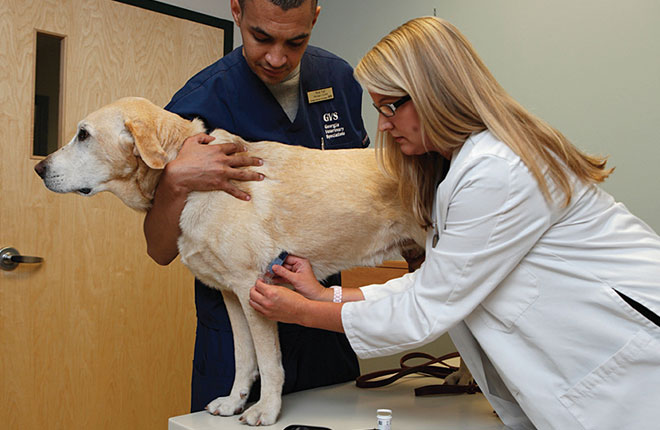Understanding Your Pets' Nutritional Requirements for Optimal Health And Wellbeing

Relevance of Balanced Diet Regimens
Guaranteeing a well balanced diet regimen for animals is crucial for their general health and well-being. Family pets, like human beings, need a mix of proteins, carbohydrates, vitamins, fats, and minerals to keep optimal health and wellness.
Including a variety of nutrients ensures that pet dogs maintain a durable immune system, healthy skin, and a glossy layer. Furthermore, a well balanced diet regimen can avoid a host of health and wellness problems such as excessive weight, which is connected to diabetes and joint problems, or malnutrition, which can result in developmental hold-ups and body organ dysfunction.
Pet dog proprietors need to be mindful of section sizes and calorie consumption, as overfeeding or underfeeding can have major effects. Consulting with veterinarians or pet nutritionists can help customize diets to meet specific requirements, making certain that family pets receive the suitable equilibrium of nutrients needed for their activity, size, and age degree. A balanced and regular diet plan is essential for a pet dog's durability and happiness.
Species-Specific Nutritional Requirements
How do different types of pet dogs have differing dietary needs? Each types possesses one-of-a-kind metabolic pathways, digestive systems, and nutritional needs that need to be fulfilled for optimal wellness.
Birds, relying on their species, may require a diet plan abundant in pests, fruits, or seeds, highlighting the variety within the bird globe. Pets. Reptiles, such as serpents and turtles, similarly demand species-specific diet regimens, with some needing high degrees of calcium and others, a well-calibrated equilibrium of bugs and plant matter
Failure to provide species-appropriate nourishment can lead to unwanteds or deficiencies, impairing health and long life. For instance, feeding a cat pet food can cause taurine deficiency, leading to serious health and wellness problems such as cardiovascular disease. For that reason, comprehending the nutritional distinctions among various species is critical for pet dog owners. By providing and recognizing to these differences, we make sure the arrangement of proper nourishment, sustaining the total well-being and vigor of our pets.
Age and Dimension Considerations
While species-specific nutritional demands lay the structure for a pet dog's diet, dimension and age additional improve these requirements. Young pets, such as young puppies and kittycats, need diets rich in calories, healthy proteins, and important nutrients to sustain rapid growth and advancement. These young animals have higher metabolic prices and call for more frequent feedings to maintain their power degrees and guarantee correct development of bones, body organs, and muscles.
As pets age, their nutritional demands change considerably. Grown-up pets normally call for fewer calories than their younger equivalents yet still require a balanced diet to preserve total wellness and vigor. Formulations created for grown-up animals often concentrate on preserving weight, advertising digestive health and wellness, and supporting an energetic way of living. Alternatively, elderly animals might gain from specialized diet plans that address age-related obstacles, such as joint health and wellness, cognitive feature, and body organ support.

Wellness Issues and Dietary Adjustments
Certain wellness problems can considerably affect the dietary needs of family pets, necessitating customized dietary modifications to support their well-being. Family pets with diabetes mellitus might profit from diet plans why not try this out that are high in fiber and reduced in straightforward carbohydrates to assist manage blood sugar degrees. In a similar way, obese animals often require reduced-calorie diet regimens to promote fat burning and avoid associated health and wellness issues.
Pet dogs with renal illness might require diet regimens low in phosphorus and protein to reduce kidney workload. Omega-3 fatty acids, recognized for their anti-inflammatory residential properties, can be advantageous for family pets dealing with problems like joint inflammation or inflammatory digestive tract disease. Furthermore, pets with food allergic reactions or intolerances could require hypoallergenic diets, often needing a procedure of removal to recognize and exclude upseting active ingredients.
Vet support is important when making nutritional changes, as wrong nourishment can aggravate existing illness or bring about brand-new ones. Routine monitoring and modifications based on the family pet's action to dietary changes are important. A balanced approach, thinking about both clinical and nutritional needs, guarantees that dietary interventions contribute favorably to taking care of wellness problems, enhancing not only the family pet's health and wellness however likewise their quality of life.
Tips for Choosing Quality Pet Food
Selecting the appropriate family pet food is critical for guaranteeing your family pet's health and wellness and long life. A well balanced diet regimen supports their immune system, keeps healthy and balanced weight and promotes general vitality. Begin by consulting your vet to understand your animal's specific dietary requirements based on type, health and wellness, and age standing.
When assessing pet food, look at the component checklist. Premium pet dog foods typically list genuine meat, fowl, or fish as the main component. Avoid products with extreme fillers like corn, soy, or byproducts that provide minimal nutritional value. Try to find natural preservatives and identifiable ingredients rather than fabricated ones.
Examine for the Organization of American Feed Control Officials (AAFCO) declaration on the product packaging. This indicates the food satisfies well-known dietary criteria. In addition, research the producer's track record. Brand names with a background of recalls or low quality control must be come informative post close to with care.
Think about whether your family pet would take advantage of special solutions such as grain-free, high-protein, or limited-ingredient diets. These can be advantageous for animals with allergies or details health concerns. Last but not least, observe your pet dog's feedback to the food. Display their layer problem, power degrees, and digestion to guarantee the diet is effective.
Final Thought
A detailed understanding of pet dogs' nutritional demands is vital for promoting their optimal well-being. By sticking to these concepts, pet owners can substantially add to their animals' development, energy levels, and general wellness, cultivating a happier and healthier life.

Choosing the ideal pet dog food is see it here crucial for ensuring your animal's wellness and long life. By sticking to these principles, animal proprietors can significantly contribute to their animals' growth, energy degrees, and total wellness, cultivating a better and much healthier life.